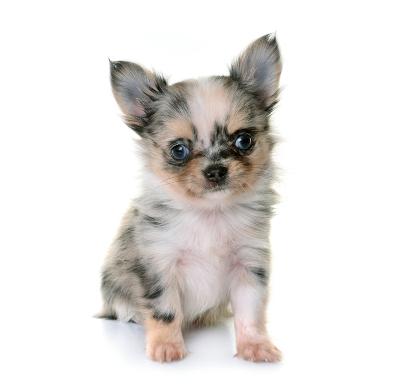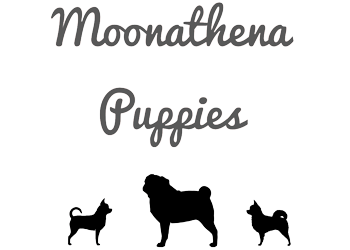
The Merle Gene in Chihuahuas
The merle coat pattern has recently surged in popularity within the Chihuahua community, often marketed as “rare” or “designer” by breeders focused more on profit than the long-term health of the breed. Unfortunately, this trend has had serious consequences.
Origin of the Merle Gene in Chihuahuas
Merle is not a naturally occurring gene in the Chihuahua breed. Historical records show no trace of merle Chihuahuas prior to the 1940s. It is widely believed that the gene was introduced through crossbreeding with other breeds. As a result, any Chihuahua expressing the merle pattern is not genetically pure and carries traits from other lines.
Despite the health concerns, the merle pattern has gained popularity in several breeds due to its striking appearance. However, this appeal often overshadows the potential health risks associated with the gene.
Understanding Merle DNA
The merle gene is dominant, meaning only one parent needs to carry the gene for it to be expressed in the offspring. Around half of the puppies in a litter from a merle parent may inherit the merle pattern. It is not a recessive trait that appears spontaneously — its presence in Chihuahuas confirms past crossbreeding.
Merle markings are most visible on coat colors such as black and tan, solid black, chocolate, and blue. Some Chihuahuas may carry the gene invisibly — these are referred to as “ghost merles.” Their coats may appear cream or sable, but genetic testing can reveal hidden merle DNA.
Health Risks Associated with Merle Chihuahuas
While the merle pattern can be visually appealing, it carries significant health risks, particularly when two merle dogs are bred together. Common health concerns in merle Chihuahuas include:
- Hearing loss or deafness (from birth)
- Vision impairment or blindness
- Increased sensitivity to sunlight (especially with blue eyes or heterochromia)
- Higher risk of sunburn and skin cancer due to lighter pigmentation
These are not temporary issues — they are lifelong health conditions that can affect the dog's quality of life and place emotional and financial strain on the owner.
Kennel Club Regulations
As of June 2010, The Kennel Club (UK) officially banned the registration of merle Chihuahuas and their offspring. This decision was made to preserve the integrity of the breed and reduce health complications associated with the merle gene. Any Chihuahua with a merle parent — sire or dam — is ineligible for Kennel Club registration.
Despite this, some breeders may attempt to register merle puppies under misleading coat colors to increase sale value. Prospective owners should be cautious and verify the authenticity of any Kennel Club documentation.
Is It Worth the Risk?
If you are looking to add a healthy, well-bred Chihuahua to your family, it is strongly advised to avoid any puppy with visible merle markings or known merle lineage. While the coat pattern may be attractive, it comes with a significantly higher risk of lifelong health issues — risks that are entirely avoidable by choosing a responsibly bred puppy from a reputable breeder.
Let me know if you'd like this adapted into a flyer, educational handout, or social media post. I'm also happy to help with a version for breeders, shelters, or general dog owner education.
